Syrian war
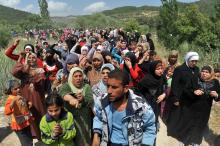
The U.S. State Department warned that religion-based terrorists as well as some governments across the globe are threatening the liberties of religious minorities.
“One of the best ways to deny these murderers their victory is by ensuring that those they have sought to destroy not only survive, but thrive,” said Deputy Secretary of State Antony Blinken, announcing the 2015 Annual Report on International Religious Freedom on Aug. 10.
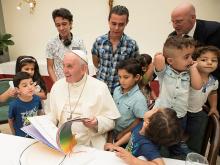
Pope Francis had lunch with 21 Syrian refugees at his private residence at the Vatican on Thursday, sending a powerful message to those in the West fervently opposed to welcoming those forced to flee the war-torn nation.
The Vatican’s chief media spokesman, Greg Burke, said the pope’s lunch guests included the Syrian families who returned to Italy with him from the Greek island of Lesbos aboard the papal plane after his official visit there in April.
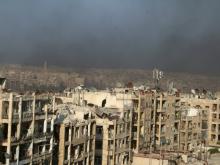
Despite intense bombing and severe food shortages, several Carmelite nuns are refusing to abandon the embattled Syrian city of Aleppo and have appealed for urgent aid.
“The bombs are falling all around us, but we are not going to leave the people in their suffering,” said Sister Anne-Francoise, a French nun from a community of Discalced Carmelites in Aleppo. “The people here are suffering and dying.”
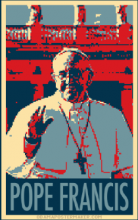
The news that President Obama will meet with Pope Francis on March 27 brightened a snowy Tuesday morning for Catholics who see a broad overlap between the president’s agenda and the pontiff’s repeated denunciations of income inequality and “trickle down” economics, and his support for the poor and migrants.
Other Catholics, especially conservatives already unsettled by Francis’ new approach, hoped that the pope would use the encounter at the Vatican to wag a finger at Obama over the president’s support for abortion rights and gay marriage.
So what will the two leaders talk about? What issues will they avoid? With Francis, anything is possible, but here are some initial ideas on how the summit could play out:
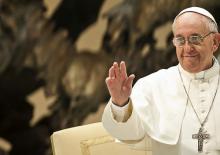
We learned the story in Sunday School.
Jesus and his inner circle — Peter, the rock, and James and John, the sons of thunder — came down from the Mount of Transfiguration and found the disciples facing their own inability to cast an unclean spirit out of a young boy. Annoyed with the disciples, Jesus says to the father: “If you believe, all things are possible to him who believes.” (Mark 9:23) The father replies: “Lord, I believe; help my unbelief.” (Mark 9:24) Jesus casts out the unclean spirit. Later, when the disciples ask why they were unable to do it, Jesus says that some only come out through prayer and fasting.
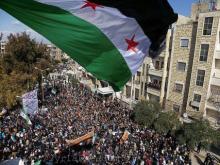
The Syrian civil war is increasingly drawing in nations across the Middle East, a regionwide conflict that threatens to pit world powers against each other and Muslim against Muslim.
On Wednesday, the United Nations Human Rights Council pushed through a resolution to investigate the abuses of the Syrian regime, over the objections of the regime’s ally Russia, who insisted the West was making matters worse.
U.S. Secretary of State John Kerry continued his travels in the region, trying to get all parties to agree to a peace conference in Geneva in the next few weeks. But councils representing the Syrian rebels again refused to join, demanding that representatives of Bashar Assad’s regime be banned.
In a war that is now clearly pitting the two main branches of the Islam — Sunni and Shiite Muslims — against one another, the dithering and differences between world powers is bringing about a desperate situation, according to experts.